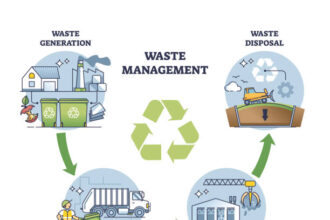Navigating the world of construction can be daunting, especially when it comes to understanding the various roles involved. One key player that often flies under the radar is the Principal Certifying Authority (PCA). Whether you’re a builder, developer, or homeowner looking to embark on a new project, knowing what a PCA does and why their role is crucial can save you time and headaches down the road. This blog post will delve into everything you need to know about principal certifying authorities—from their responsibilities to how they fit into your construction plans. Let’s uncover this essential aspect of building compliance together!
The Role and Responsibilities of a PCA
The Principal Certifying Authority (PCA) plays a vital role in the construction process. This professional ensures that building projects comply with local regulations and standards. They act as the bridge between builders and regulatory authorities.
One of their primary responsibilities is to issue construction certificates. These certificates confirm that plans meet safety codes before work begins. The PCA also conducts inspections at various stages to ensure compliance throughout the project’s lifecycle.
Additionally, they address any potential issues or discrepancies during construction. This proactive approach helps prevent costly delays and legal complications down the line.
A PCA must keep detailed records of all inspections and approvals, ensuring transparency at every step of the project. Their expertise aids not only in safeguarding public interest but also in facilitating smooth operations for builders and developers alike.
Types of Work that Require a PCA
Various types of work necessitate the involvement of a principal certifying authority. These projects often require compliance with local building regulations and safety standards.
Residential construction is one prime area where a PCA plays a crucial role. This includes new homes, renovations, or any structural modifications that change occupancy or usage.
Commercial developments also fall under this category. Offices, retail spaces, and warehouses must adhere to strict codes before they can be occupied.
Infrastructure projects like roads and bridges are typically overseen by a PCA as well. Ensuring adherence to safety protocols is essential in these large-scale operations.
Additionally, industrial facilities may need certification for alterations or expansions. A PCA ensures that all changes meet required legislation.
Any public works undertaking usually requires oversight from a principal certifying authority to maintain compliance with relevant laws and guidelines.
How to Become a Principal Certifying Authority
Becoming a Principal Certifying Authority (PCA) requires specific qualifications and experience. First, you need to have a solid understanding of building regulations and standards. A background in architecture, engineering, or construction can be beneficial.
Next, gaining relevant certifications is essential. Many regions require PCAs to hold specific licenses or accreditation from recognized bodies. Research the requirements in your area to ensure compliance.
Hands-on experience is crucial too. Working under an established PCA allows you to learn the nuances of certification processes firsthand. This mentorship can provide invaluable insight into navigating complex regulations.
Networking within industry circles helps as well. Engage with professionals at conferences or workshops focused on building and construction law.
Staying updated on changes in legislation will keep your skills sharp and relevant in this evolving field.
Benefits of Hiring a Principal Certifying Authority
Hiring a Principal Certifying Authority (PCA) offers numerous advantages for any construction project. First and foremost, PCAs streamline the approval process. Their expertise ensures that all necessary documentation is in order, which can save valuable time.
Additionally, a PCA brings deep knowledge of local regulations and building codes. This understanding helps prevent costly delays due to compliance issues. They act as guides through the labyrinth of requirements.
Another benefit lies in risk management. By having an experienced professional oversee the certification process, you mitigate potential legal complications down the road. This oversight protects both your investment and peace of mind.
Moreover, working with a PCA enhances communication with local authorities. Their established relationships can facilitate smoother interactions during inspections or approvals.
In essence, hiring a Principal Certifying Authority not only simplifies procedures but also strengthens project integrity from start to finish.
Potential Challenges with PCA Approval
Obtaining PCA approval can be a complex process. One common challenge is navigating the myriad of regulations and requirements that vary by region. Each local council may have different criteria, adding layers to the already intricate procedure.
Delays are another frequent hurdle. Applicants often encounter waiting periods for document reviews or site inspections, which can lead to frustration and postponements in project timelines.
Miscommunication between builders, property owners, and authorities also complicates matters. Clear understanding of expectations is vital but often lacking.
In addition, financial considerations play a significant role. The costs associated with hiring a PCA can be daunting for some projects, especially smaller developments where budgets are tight.
It’s essential to approach these challenges proactively to ensure smoother progress toward obtaining approval.
Conclusion: Is Having a PCA Necessary?
The necessity of having a Principal Certifying Authority often depends on the specific project and its requirements. For large-scale developments, a PCA can ensure compliance with local regulations and building codes, streamlining the approval process.
However, for smaller projects or renovations, some may choose to navigate without one. It’s essential to weigh the benefits against potential risks. Engaging a PCA can provide peace of mind and expertise that might be invaluable in complex situations.
Understanding your project’s scope will guide your decision on whether hiring a PCA is necessary for your construction journey. Taking this step could save you time and resources in the long run while ensuring quality and adherence to safety standards.

















